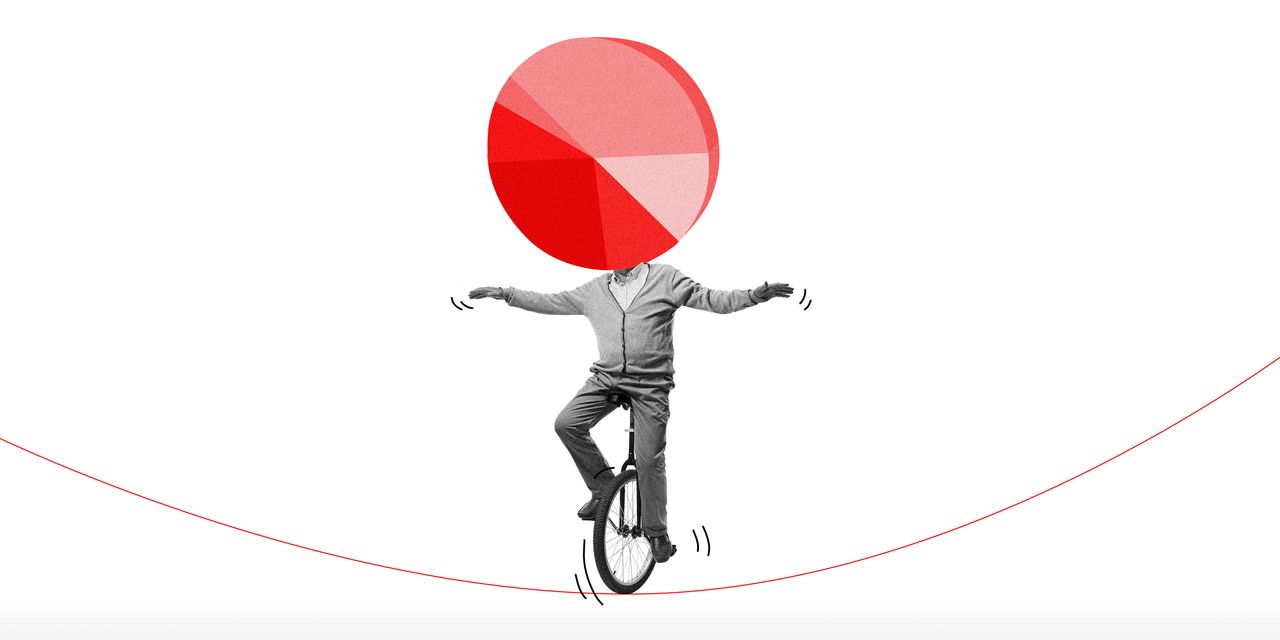
The unending pandemic has millions of people feeling like their lives are on hold. Many of them feel their financial growth is on hold, too.
Americans began hoarding money in the early days of Covid-19. They were worried about their health, their jobs and the prospect of a deep recession that never really came. As the pandemic dragged on, some kept their accounts in a protective crouch and amassed record savings levels, while others started spending.
Those who spent drove a rally in home and car prices. Now, supply chain and other problems are driving an increase in prices for everyday items and services. Data on Wednesday showed that inflation as measured by the U.S. consumer-price index rose 7% in December with rising prices for rent, groceries, gas and more.
Financial advisers and economists say some consumers feel defeated.
Some of these Americans are still unsure about spending their savings given new virus variants. Others are unhappy that their pay isn’t keeping pace with inflation. Those who held off on spending for a while say they are being outbid for all types of items, from cars and homes to rental properties and construction equipment.
“Prices have gone up so much. It’s frustrating when you’re trying to plan,” said Dr. Ann Kier-Schroeder.
Dr. Kier-Schroeder, 72 years old, and her husband Dr. Friedhelm Schroeder, 74, have been living in their recreational vehicle for more than two months after selling their College Station, Texas, home for about $1.5 million.
“‘Prices have gone up so much. It’s frustrating when you’re trying to plan.’”
The retired professors planned to build a new home on the 1.5 acres of land they bought close to their adult daughter and her family in Montgomery, Texas. They hoped to build it for about $800,000 but realized the costs of building materials such as lumber would boost the price to more than $1 million.
The couple is now debating whether they should wait, or if waiting will set them back even more.
“Everything is in limbo,” Dr. Kier-Schroeder said.
Americans are better off than they’ve been in awhile, with rising 401(k) balances, record savings and ample job openings. Not that it’s helping all of them feel more secure.
Frustration appears to be higher among Americans who say Covid-19 changed their attitudes toward money, according to a 2021 survey by research firm Hearts & Wallets. Of that group, 66% said they wish they were doing a better job saving compared with 34% of respondents who said Covid-19 didn’t change their perspective on money, the survey found.
An April survey of about 2,442 adults by Bankrate found that 39% of Americans have put off a financial milestone such as buying a home or a car due to the pandemic. That number may be higher given tightening markets and prices—even used cars and trucks have risen about 37% year over year, according to the Labor Department.
Overall, Americans are hoarding close to $1.6 trillion in excess savings from the pandemic. There is some evidence, including credit-card data from the Federal Reserve, that they’ve begun to spend a bit more recently.
People tend to think that money is the primary barrier to getting the perfect house or car, said George Loewenstein, professor of economics and psychology at Carnegie Mellon University.
“They may now have more money, but supply issues and inflation are taking away those things they thought were finally within their reach,” he said. “It just drives some people crazy.”
Lauren Lindsay, a financial planner in Houston, encourages clients to consider alternatives when long-distance vacations get canceled or the new car they want is unavailable due to shipping delays. She asks whether they’d consider a different car or plan to drive their existing one longer. Or she might suggest a shorter vacation until the mega-trip can happen.
Letting people talk and brainstorm alternatives helps, she said: “People just need to vent and be heard.”
As inflation damps the power of paychecks, 3% raises do little to cheer earners.
“It was good when inflation was 2%, but not so much now,” said Minneapolis-based financial adviser Mark Struthers. He counsels clients to ask for raises or reimbursements to offset the costs of working from home, including higher heating bills.
SHARE YOUR THOUGHTS
How have you changed your financial goals during the pandemic? Join the conversation below.
Workers should also maximize benefits such as health-savings and dependent-care accounts, paid training and any reimbursement for costs related to working from home, he said.
Even the stock market’s stunning performance—the S&P 500 rose more than 25% in 2021—is leaving people glum, advisers say. It’s unclear to some how much higher the market can go, and cash and bonds are returning next to nothing, meaning savers are feeling left behind.
Clients are feeling “paralyzed” about where to invest, said Jay Lee, a financial planner in Jersey City, N.J. He’s seeing cash balances north of 20% of some newer clients’ investible portfolios.
Many financial advisers recommend having about 10% or less in cash in an investible portfolio.
Mr. Lee has to tell clients that staying in cash is risky when dollars are effectively worth less as inflation rises, he said.
He advises people to take an inventory of what’s in all of their accounts and create an emergency account of about six months of expenses. Then, people should tackle short-term goals such as paying for their child’s braces or eliminating a high-interest credit-card debt. The rest should be invested in a low-fee, long-term, diversified portfolio, he said.
“You’ll continue to be frustrated if you try to time the market,” Mr. Lee said.
Write to Veronica Dagher at [email protected]
Copyright ©2022 Dow Jones & Company, Inc. All Rights Reserved. 87990cbe856818d5eddac44c7b1cdeb8








